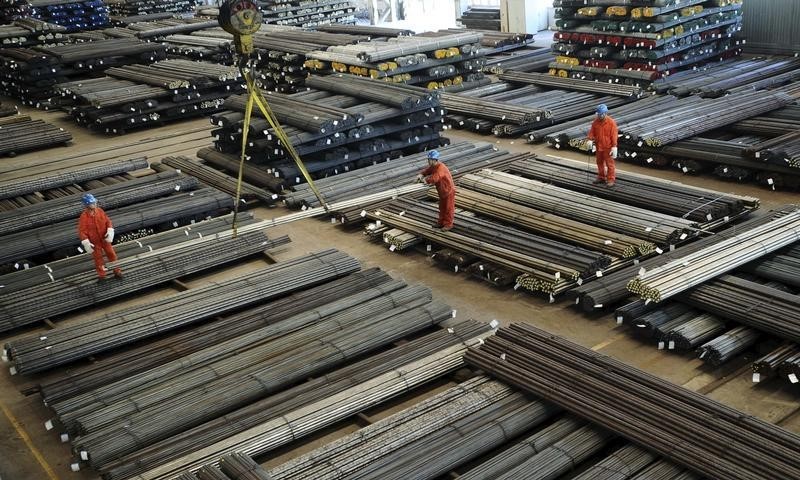(This story corrects to show steel capacity now at 1.13 bln tonnes, not to fall to 1.13 bln tonnes by 2020)
By David Stanway
BEIJING (Reuters) - China's total crude steel capacity currently stands at 1.13 billion tonnes, and the country needs to step up efforts to shut down poorly performing mills, a government official said on Saturday.
In February China announced plans to shut 100 million to 150 million tonnes of crude steel capacity in the next five years, as it tackles a price-sapping glut that has caused turmoil in the industry.
But more would need to close to achieve significant improvements, Luo Tiejun, the vice head of the raw materials department at the Ministry of Industry and Information Technology (MIIT), told a conference.
Luo said domestic steel consumption was forecast to stay between 630 million and 700 million tonnes in the coming five years, and if exports remained at 100 million tonnes, production levels would stay at around 800 million tonnes.
Restoring the sector to health would require taking out still more capacity, however.
"If production stays at 800 million tonnes, then we need to cut 200 million tonnes for the situation to become acceptable," he said.
Luo, who was discussing China's five-year plan until 2020 for the stricken sector, said as well as the 1.13 billion tonnes "some dead capacity" still remains. Capacity was previously estimated to stand at 1.2 billion tonnes, about 400 million tonnes over actual production in 2015.
Besides ordering closures, the February plan also banned new steel projects, but the China Iron and Steel Association (CISA) had warned of a further rise in capacity this year.
China's steel firms have blunted some of the impact of overcapacity by selling their surpluses abroad, taking exports to a record 112 million tonnes in 2015.
But the flood of cheap Chinese steel on foreign markets has sparked protests and anti-dumping complaints, and Luo warned that China could not expect to scale up exports further to remedy overcapacity.
China will focus on boosting industry efficiency in the next five years, aiming to raise utilisation rates closer to 80 percent, from a CISA-estimated average of 67 percent last year.
CISA secretary general Liu Zhenjiang said the flood of cheap exports posed a threat to China's attempts to secure market economy status.
The rebound in Chinese steel prices this year had created a "vicious circle", Liu said, spurring mills to ramp up output again, even though underlying demand remained weak.

"Cutting steel capacity is important, but controlling steel output is more important," he added.